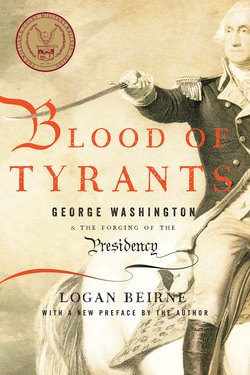Читать книгу Blood of Tyrants - Logan Beirne - Страница 10
На сайте Литреса книга снята с продажи.
ОглавлениеPREFACE TO THE PAPERBACK EDITION
“What is past is prologue.” These words, penned by William Shakespeare in The Tempest, are inscribed into the granite of the National Archives Building in Washington, D.C. The inscription is fitting when you consider how many recent headlines could have been plucked right out of the American founding era: ASSESSING THE TRADE-OFFS BETWEEN SECURITY AND CIVIL LIBERTIES; or, HOW THE GOVERNMENT SPIED ON ME; or, POW SWAP TOOK PLACE IN A LEGAL GRAY AREA.1 The United States has faced this all before, and our past might offer a guide for our future.
Never was a more compelling prologue written than when the founding generation forged our nation. Whether it is the NSA intercepting Americans’ emails today or the Continental Congress intercepting citizens’ letters during the Revolutionary War, there are parallels between the present day and the nation’s humble beginnings. Technology has changed but our fundamental rights and American values need not.
I was raised in a family and a community where the patriotic spirit of the American Revolution remains very much alive. My parents constantly reminded me, “You are descended from Revolutionary War patriots. James Madison is in your family tree. These people matter!” Yet I found the study of history to be boring. Eventually I realized that it was not the history that was uninteresting, but the way it was often presented. So I left behind the textbooks and sought out the Founders’ writings to hear the story in their own words.
Soon I learned that some of George Washington’s lost papers had been discovered in one of my ancestor’s storage chests. Intrigued by this familial connection, I began to take a keen interest in the first president of the United States, and when I had to write a lengthy research paper to graduate from Yale Law School, it was natural to focus on Washington. Specifically, I aimed to determine what the U.S. Constitution meant when it designated the president as “Commander in Chief.” To me, the answer seemed obvious: the text was referring to the powers exercised by the only commander in chief the nation had ever had at that time, General George Washington.
The subject continued to captivate me long after the school paper was graded. With controversies arising over the ways that successive presidents have invoked their power as commander in chief, I found myself looking to the past for insight into how best to assess these debates. After graduation, I continued researching the topic while practicing as an attorney at a New York law firm, and finally completed this book after I returned to Yale Law School as an Olin Scholar. My goal has always been to show that our nation’s early history is neither dry nor dead. Not only is it fascinating and colorful, it is also relevant to modern concerns. This history has real legal weight that influences how the president, the Congress, and the Supreme Court interpret the powers of the presidency in our modern era.
Blood of Tyrants brings long-forgotten episodes from the Revolutionary War back to life with surprising new facts. I wanted this book to be as enjoyable to read as fiction, yet painstakingly researched and factual down to the minute details of weather, food, clothing, and personalities. But most of all, I wanted to get people discussing issues that the American Founders faced while winning independence and creating a new nation—issues that still confront us today.
In this last respect, the book has succeeded far beyond my hopes. Blood of Tyrants has been featured by ABC News, Fox News, the History Channel, C-SPAN, Reuters, USA Today, the Wall Street Journal, the Washington Post, the New York Post, National Review, and many other media outlets. It won the William E. Colby Award, and I have had the chance to speak across the country to lively audiences from Boston to San Diego, Miami to Seattle, and many points in between. I continue to do my small part in encouraging people across the United States and abroad to reflect on our nation’s founding struggles and how they informed the meaning of the Constitution—especially when there are public controversies over the legitimate use of governmental power.
Too often, those disputes are colored by partisanship more than principle. When I see headlines like DANGEROUS DIVISIVENESS: POLITICS GROWS MORE PARTISAN,2 or watch the acrimonious political morass in Washington, D.C., I cannot help but think about how George Washington denounced political faction. He called it a “fire not to be quenched . . . demand[ing] a uniform vigilance to prevent its bursting into a flame, lest, instead of warming, it should consume.” Our first president urged us to use our votes and civic engagement to fight against “ill-founded jealousies” among politicians and to install principled leaders, as our Founders were.3
The Founders developed an ingenious political system, which Washington described as “nearer to perfection than any government hitherto instituted among men.”4 This government “by the people, for the people” empowered the citizenry to select representatives who would reconcile factions while protecting the liberties that so many had died to defend. Under this system, the United States has prospered beyond the founding generation’s wildest dreams; and I wrote this book to help illuminate the constitutional principles that have enabled us to thrive.
The Constitution of the United States embodies the path on which the Founders set the nation. George Washington wrote in 1795, “the constitution is the guide, which I never will abandon.”5
Neither should we.
